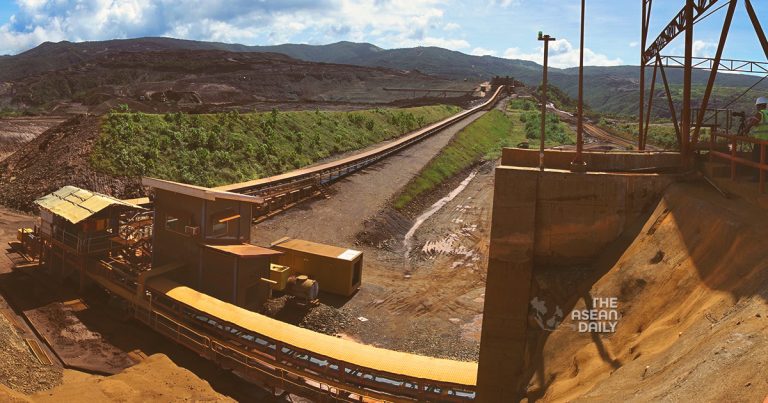3-8-2023 (JAKARTA) Indonesia has defended its export curbs on nickel ore against protests from the European Union (EU), stating that it has the right to enhance value addition, boost its economy, and create job opportunities by climbing the value chain. The country maintains that it is taking the necessary steps to develop its electric vehicle (EV) ecosystem, while the EU argues that the nation, which is rich in natural resources, has breached international trade rules by restricting exports. Indonesia, which was the world’s top exporter of nickel ore, introduced a ban on its export on January 1, 2020, causing global nickel prices to soar and hurting the EU.
Indonesia’s “down-streaming” policy mandates that all raw nickel extracted in the country must be processed domestically, allowing for higher value-added export revenues and spurring the growth of the mineral smelting industry. The policy has resulted in the construction of 15 nickel smelters in Indonesia in recent years, many of which were built by investors from China, the world’s largest auto exporter and EV battery maker. Indonesia holds nearly a quarter of global reserves of nickel.
While the World Trade Organisation ruled against Indonesia’s nickel ore export restrictions in October 2022, Indonesia appealed in November 2022 and was allowed to uphold the ban pending a decision. The ban remains in effect.
Indonesia’s President Joko Widodo has argued that the country’s down-streaming policy will play a significant role in the nation’s chance to become a high-income country by 2045. The policy has resulted in a jump in annual export proceeds related to nickel, from US$2.1 billion to US$33.8 billion. In Central Sulawesi and North Maluku, nickel-related jobs have increased to 71,500 and 45,600, respectively. Both provinces have recently built integrated industrial parks to process nickel ores, and domestic processing of this mineral is expected to fuel the fast-growing EV race globally.
Indonesia has plans to ban exports of other minerals, including copper, with the aim of creating a job market. In late June, the International Monetary Fund recommended that Indonesia phase out mineral export restrictions and not expand the policy to other minerals. However, President Widodo has dispatched a delegation to the US to explain Indonesia’s position to the IMF.
Indonesia’s fast-developing EV ecosystem has attracted global manufacturers to set up facilities in the country. Indonesia has lured private sector investment with incentives such as 20-year tax holidays. South Korea’s LG Chem is investing billions of dollars in EV supply chains in the Batang Industrial Park in Central Java, while China’s CATL, the world’s largest EV battery maker, will start building a facility in Buli, North Maluku province, in 2023. The facility will have smelters to produce precursors and cathode. The world’s two largest makers of EV, the US’s Tesla and China’s BYD Automobile, are also considering setting up operations in Indonesia.
However, Indonesia faces stiff competition from developed nations. The US Inflation Reduction Act passed by Congress in 2022, which includes incentives for EVs with a minimum benchmark of 40% of the battery’s materials to come from the US or its free-trade partners, has prompted some companies to direct some of their planned capacity expansion to the US. Meanwhile, Canada has increased a C$1 billion aid package for at least one new EV battery plant, and the EU has introduced its Net-Zero Industry Act, which includes a target of manufacturing 90% of its annual EV battery needs locally. France, Spain and Germany have also introduced various tax credits and aid packages for EV investments in their respective countries.
Indonesia’s nickel mining and smelting industries have attracted more investment, with recent announcements such as a US$2.6 billion refinery in North Maluku by German chemical maker BASF and French miner Eramet, which will produce a nickel compound used in EV batteries. While the EU is far from being a large direct importer of Indonesia’s nickel ore or processed nickel, the €125 billion EU steel industry claims that cheaper stainless steel imports hurt domestic manufacturers. When Indonesia announced its nickel ore ban in 2020, the EU petitioned the WTO, whose rules prohibit member countries, including Indonesia, from using quotas, import or export licences or other measures to restrict trade, including of raw materials.




